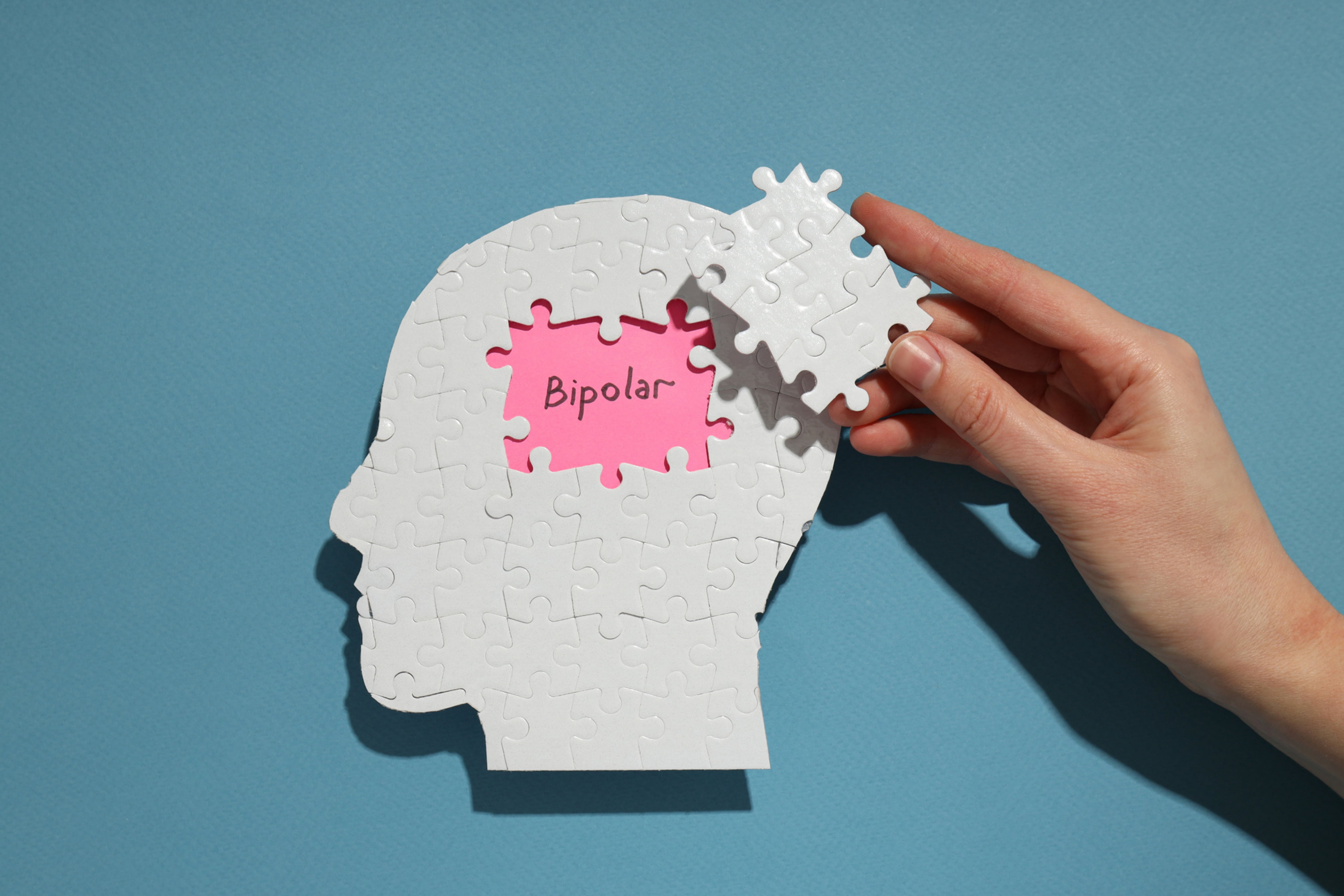Relationship dynamics can be intricate, especially when mental health becomes a part of the equation. For those with bipolar partners, periods of distance or being ignored can be challenging and deeply unsettling. While it’s crucial to recognize that such behaviors often stem from their illness and not personal disdain, it’s equally important to know how to cope, understand, and effectively respond.
The following are strategies to consider when facing these moments of silence. Remember, every individual and relationship is unique, so some may resonate more than others.
These ideas are rooted in understanding, compassion, and proactive coping.
1. Recognize the Illness
Understanding Bipolar Disorder: Bipolar disorder is characterized by mood swings, ranging from depressive lows to manic highs. Periods of withdrawal or avoidance might be a manifestation of these phases.
- During depressive phases, individuals may become distant, seeking solitude and avoiding social interaction. It’s crucial to separate the symptoms of the disorder from personal feelings of rejection.
- Engaging in self-education about bipolar disorder can help in responding empathetically. Several research studies emphasize the importance of understanding the nuances of this condition to navigate relationships effectively.
2. Prioritize Communication
Opening Channels of Dialogue: It’s fundamental to ensure that both partners feel heard and understood. Communication forms the bridge to empathy and clarity.
- Initiate gentle conversations, ensuring your partner feels safe and not judged. Make it about understanding their feelings rather than confrontation.
- Share your feelings without laying blame. Use “I” statements, like “I feel hurt when you withdraw,” instead of “You always ignore me.”
- According to studies, effective communication techniques can significantly strengthen the bond between partners, especially when one is dealing with mental health challenges.
3. Seek Professional Help
The Role of Therapy: Relationship counseling or individual therapy can offer coping mechanisms and strategies for both partners.
- A therapist can provide tools and insights, guiding the relationship through challenging moments.
- If your partner is currently seeing a therapist, consider joining a session or two, with their consent. It can help in understanding their perspective better.
- Research shows that couples therapy can be beneficial for partners where one is dealing with mental health issues.
4. Build a Support System
Finding Strength in Numbers: Remember, you’re not alone. Seeking support from friends, family, or support groups can be immensely helpful.
- Talking to others can provide fresh perspectives and coping strategies.
- Support groups, especially those focusing on loved ones of bipolar individuals, can offer understanding and solidarity.
- Numerous studies highlight the therapeutic benefits of having a robust support system during challenging relationship phases.

5. Create Personal Boundaries
Setting Limits for Emotional Health: While understanding is essential, self-care shouldn’t be neglected.
- Recognize signs of emotional and mental exhaustion in yourself and take steps to protect your well-being.
- Create clear boundaries regarding what behaviors you can accept and which ones you can’t.
- As per research, maintaining personal boundaries is crucial for the health of both the individual and the relationship.
6. Focus on Self-care
Catering to Yourself: In the quest to support your partner, don’t neglect your own needs.
- Engage in activities that you love and find relaxing.
- Ensure you’re getting adequate sleep, nutrition, and exercise.
- Studies underscore the importance of self-care, especially when supporting a partner with mental health challenges.
7. Educate Friends and Family
Building a Network of Understanding: Sometimes, those around you may not grasp the complexities of bipolar disorder.
- Take time to educate close friends and family, helping them understand your partner’s behavior.
- This not only ensures support but also minimizes potential misconceptions.
- Research emphasizes the positive impact of a well-informed support network on relationship dynamics.

8. Create Safe Spaces
Fostering an Environment of Trust: Your partner should feel that there’s a non-judgmental space where they can express themselves.
- This might be a physical space, like a calm room, or a mental one where open dialogue is encouraged.
- Safe spaces can act as havens during overwhelming moments.
- A study on mental health highlights the therapeutic benefits of safe environments for individuals with bipolar disorder.
9. Avoid Blaming Games
Understanding vs. Accusation: It’s easy to fall into the trap of blame, but it can be detrimental.
- Focus on understanding the root cause rather than pinpointing faults.
- Recognize the difference between the person and the illness.
- According to research, blame can exacerbate feelings of isolation in individuals with mental health challenges.
10. Engage in Joint Activities
Building Bonds through Shared Experiences: Engaging in activities together can foster connection and understanding.
- Choose activities that both of you enjoy, offering relaxation and bonding.
- This not only helps in creating positive memories but also in navigating through challenging phases.
- A study on relationship dynamics suggests that shared activities can significantly boost relationship satisfaction.

11. Stay Informed on Treatment
Being Proactive: If your partner is on medication or undergoing any treatment, stay informed.
- This helps in understanding potential side effects or behavioral changes.
- Being proactive can also ensure safety during episodes of extreme highs or lows.
- Research underscores the importance of being knowledgeable about treatment options and their implications for individuals with bipolar disorder.
Why Do Some People Choose Bipolar Partners? A Psychological Insight
Human relationships are complex, governed by a myriad of factors, both conscious and subconscious. When looking into the reasons some individuals may be drawn to partners with bipolar disorder, it’s essential to tread with sensitivity. We must understand that love isn’t a clinical choice; it’s a profound, multi-dimensional feeling. However, psychology offers some insights into potential reasons behind such choices.
- The Caregiver’s Instinct: Many people possess a nurturing instinct. They’re naturally predisposed to care for others, particularly those who show visible signs of vulnerability. A partner with bipolar disorder might evoke this caregiving nature due to their frequent emotional highs and lows. In a way, the partner becomes a project, someone they can support, care for, and, in some subconscious way, ‘fix’.
- The Allure of Intensity: Bipolar disorder, characterized by its intense mood swings, can lead to passionate highs and profound lows. This intensity can be magnetic, offering a depth of emotion and experience that some might find enticing. The spontaneity and unpredictability of someone with bipolar can be exciting and bring a sense of adventure to the relationship.
- Desire for Emotional Depth: People with bipolar disorder often exhibit deep emotional resonance due to their experiences. This depth can be attractive for those who seek profound emotional connections and meaningful conversations.
- Unresolved Personal Trauma: Sometimes, individuals who are drawn to partners with evident vulnerabilities, like bipolar disorder, might be working through their unresolved traumas. They might subconsciously see a reflection of their struggles in their partner, creating a bond rooted in mutual understanding.
- Co-dependency Patterns: Relationships with individuals who have mental health challenges can sometimes lead to co-dependency, where one partner might feel needed and indispensable. This dynamic can provide a sense of purpose and validation for some.
- Familiarity and Past Experiences: For someone who grew up around family members with mood disorders or other mental health challenges, there’s a familiar pattern in partnering with someone with bipolar disorder. They might be recreating dynamics they’ve known all their life.
While these reasons offer a glimpse into the possible psychology behind the choice of partners, it’s imperative to note that many people enter relationships with bipolar individuals simply because they fall in love with the person, not the disorder. The complexities of human emotions and connections can’t be solely defined by psychological theories.
Issues Faced in Relationships with Bipolar Partners:
- Emotional Rollercoaster: Partners can frequently find themselves on an emotional ride due to the unpredictable mood swings of their bipolar counterparts. One moment might be filled with love and affection, and the next can be characterized by detachment or intense anger.
- Feeling Overwhelmed: The continuous need to support and understand can be overwhelming. Partners might often feel they’re walking on eggshells, trying to prevent potential triggers.
- Lack of Consistency: Plans might change frequently due to sudden mood shifts, leading to a feeling of instability in the relationship.
- Misunderstandings: It can be challenging to differentiate between what’s a symptom of the disorder and what’s a genuine emotion. This can lead to frequent misunderstandings.
- Social Challenges: Friends and family might not always understand the dynamics of such a relationship, leading to feelings of isolation or judgment.
- Personal Neglect: Due to the often-demanding nature of such relationships, partners might neglect their well-being, leading to burnout and mental health challenges of their own.
- Co-dependency Issues: As mentioned earlier, co-dependency can arise where one partner feels indispensable, leading to an unhealthy power dynamic.
- Financial Strains: Sometimes, during manic phases, individuals with bipolar disorder might make impulsive financial decisions, placing strain on the relationship.
- Fear of Severe Episodes: Partners might constantly fear more severe episodes, leading to anxiety and stress.
- Feeling Trapped: Some might feel trapped in the relationship due to guilt or the fear that their partner might harm them if they leave.
In conclusion, while there might be specific psychological patterns that suggest why some individuals are drawn to bipolar partners, it’s essential to recognize the depth, complexity, and individuality of each relationship.
Each couple has its unique journey, challenges, and story. Empathy, understanding, and communication remain the pillars for navigating these intricate relationship dynamics.
Understanding if Your Crush or Partner Might Be Bipolar
Bipolar disorder is a complex mental health condition characterized by significant mood swings, ranging from depressive lows to manic highs. While only a qualified professional can diagnose someone with bipolar disorder, there are some signs and symptoms you can look for if you suspect your crush or partner might be affected.
Signs They Might Be Bipolar:
- Dramatic Mood Swings: One of the most telltale signs is a sudden and drastic change in mood. They might oscillate between feeling on top of the world and being sunk in despair, often without any clear external reason.
- Increased Energy or Restlessness: During manic or hypomanic phases, they may exhibit heightened energy levels, making grandiose plans, talking rapidly, or becoming easily distracted.
- Depressive Episodes: They might display signs of severe depression, such as feeling hopeless, experiencing a lack of energy, having difficulty sleeping, or even mentioning thoughts of death or suicide.
- Impulsivity: They might make rash decisions, especially concerning money or personal choices, without thinking about the consequences.
- Altered Sleep Patterns: You might notice they’re sleeping too little during manic phases or too much during depressive ones.
- Changes in Social Activity: They might become the life of the party out of nowhere or, conversely, withdraw from social activities entirely.

What to Do If You Suspect Your Partner or Crush is Bipolar:
- Educate Yourself: Learn as much as you can about bipolar disorder. This will help you understand their behavior better and respond more empathetically.
- Open a Dialogue: Approach the topic gently, expressing your concerns without making it sound like an accusation. Use “I” statements, like “I’ve noticed you’ve been feeling really up and down lately.”
- Encourage Professional Help: If they’re open to it, suggest they see a doctor or therapist who can provide a proper diagnosis and recommend treatment options. Remember, only a trained professional can diagnose bipolar disorder.
- Avoid Playing Therapist: While it’s good to be supportive, avoid trying to diagnose or treat them yourself. This could lead to misunderstandings or even harm.
- Seek Support: Consider joining a support group for loved ones of those with bipolar disorder. This can offer insight into coping mechanisms and provide a sense of community.
- Practice Self-Care: It’s essential to look after your own well-being too. Make sure you have outlets for stress and can set boundaries when necessary.
- Plan for Crisis: While it’s a difficult topic, if your partner has suicidal thoughts or tendencies, have an emergency plan. This might include knowing the nearest emergency room, having a list of critical contacts, or understanding how to reach out to crisis helplines.
In conclusion, if you suspect your crush or partner has bipolar disorder, it’s essential to approach the situation with compassion, understanding, and a willingness to support them.
At the same time, prioritize your own well-being and ensure that you’re equipped to handle the challenges that may come your way. Both partners thriving independently and together is the hallmark of a healthy relationship.

Conclusion
Navigating a relationship where a partner has bipolar disorder can be challenging. Moments of silence or distance can be especially tough. However, understanding, empathy, and effective coping strategies can make a world of difference.
Remember, every individual and relationship is unique. The goal is to foster understanding, build stronger bonds, and ensure the well-being of both partners.
[wp-faq-schema title=”Frequently Asked Questions”]
